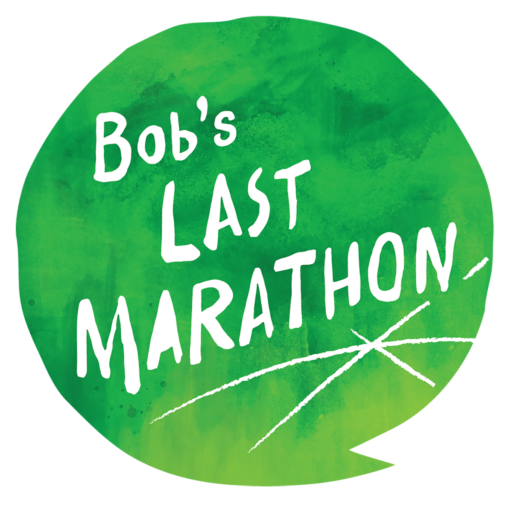Transcript
Socializing
I remember the last dinner party at our home, not long before Bob passed away. I even remember the menu—roasted leg of lamb, rice pilaf, and salad that we prepared as a group together. Bob was not with us. But after we finished the main course and moved to the living room, Bob arrived with his caregiver Thomas, who, at my request, had taken Bob to a movie and dinner at a nearby restaurant. When Bob saw our friends in the room, he broke into a big smile, squeezed my hand, and settled into his chair by the fireplace as I brought out dessert—a blueberry pie, one of his favorites. Even though Bob wasn’t speaking much anymore, I could tell how much he enjoyed being the guest star of our party and being with us as we chatted away.
The dinner party went just as I had hoped. It was my new plan, to give Bob and our friends time together, while freeing myself from the anxiety of taking care of him at the dinner table and worrying about the mess he inevitably made. Afterward, a few friends told me that my plan was a good compromise.
When Bob was diagnosed with Alzheimer’s disease, I knew that our lives would change, but I was focused on managing his disease and preserving his quality of life. I didn’t give much thought to our social lives, so it never dawned on me it would need to change—even though it made perfect sense, since so much of our lives would change as Bob’s disease progressed. I guess I couldn’t predict how important it would be to keep our social world alive.
I don’t want to give you the wrong impression. We really weren’t all that social, especially compared with some other couples we knew. Aside from holidays and special events like weddings, we’d gather with friends every few weeks for dinner or concerts. It was a nice part of our routine as a couple—and important to us both.
But between the two of us, Bob was the outgoing one. While I was the one who planned our events, as women often do, Bob was our social emissary. He loved people and was gifted with the ability to talk to anyone. So, when his cognitive skills began to decline, I wasn’t ready to deny Bob the joy of socializing. I was aware of socializing as a key element of Alzheimer’s care, helping to keep the mind active. But looking back, I’ve come to realize that staying socially connected meant something deeper to me: It gave me a sense of normalcy in our lives at a time when that was diminishing day by day as Bob’s symptoms worsened.
Some of our adjustments were straightforward. When Bob started losing his ability to read a menu or when making menu choices became tough for him, he would cleverly let me order first and say, “I’ll have the same.” Over time, I would simply order his favorite dishes on his behalf.
Other changes were more difficult to deal with. When incontinence first set in, I could simply remind Bob to use the bathroom. But as his cognitive function declined, I would need to stand outside the bathroom waiting for him. It eventually got to the point where I would just go in with him. I remember one night out at Chez Panisse, Alice Waters’ restaurant in Berkeley. As I escorted Bob to the beautifully decorated but tiny bathroom, trying to ignore the curious onlookers, I told myself I didn’t care—I’d be damned if I wasn’t going to give him the care and support he needed. Our friends got used to our “ritual” when we visited their homes.
Loss of mobility was also a factor for some events, forcing Bob and me to sit apart from our group of friends in a handicap-friendly area, or getting in and out of the car. When I went on an outing just with Bob, this maneuvering seemed routine, and everything felt like a normal evening. But with friends, I felt pressure if I was keeping people waiting or needed their help.
As Bob’s motor skills deteriorated, dining became a bigger challenge. I developed an immunity to the looks of surprise and pity when I cut up Bob’s food for him. But I couldn’t ignore his messy eating. Bob never lost his ability to use silverware or chopsticks, but when he ate, food seemed to fly in every direction, landing on his clothes, the table, the floor. I became more and more anxious as the meal went on, fashioning makeshift bibs out of napkins, picking food off the floor, policing the table for messes.
Buffet dinners and receptions were a different story. I remember the hostess at a fundraiser telling me, with a touch of sadness in her voice, “I really admire you for the way you take care of Bob. I don’t know how you do it,” as she watched me fetching water, refilling Bob’s plate of appetizers, pushing his wheelchair so he could see the beautiful displays of food, and parking him if I could at nearby tables. Yes, I was busy, but somehow these settings were more manageable, almost freeing. With so many people milling around, I didn’t feel as conspicuous helping Bob as I did in regular restaurants.
Socializing at friends’ homes presented different issues. Not all friends were willing to deal with Bob’s symptoms. And some houses just weren’t well suited. I would understand, with no hard feelings, when we were no longer included in gatherings at homes with fine decor. Moving the party outdoors was a practical option, when available. Some friends offered the generous and practical solution of bringing meals to share to us.
Eventually, I became overwhelmed by my own obsession with Bob’s eating habits and keeping him and the area around him tidy. So even though invitations from good friends always included both of us, I started going to dinner parties alone.
But getting together for dinner was not the only way to socialize as a couple. Concerts, movies, museum visits, sing-alongs, and storytelling were favorites for Bob and me, although in our culture these activities almost inevitably end with a meal where people can talk about the event.
Not all couples will be willing to go the extra mile, making adjustments to stay social. But for Bob and me, it was worth it. As so much else was being taken away, I wanted to give Bob the chance to enjoy something he always loved, and do the best we could as a couple to fight this disease.
Lena Chow Kuhar

